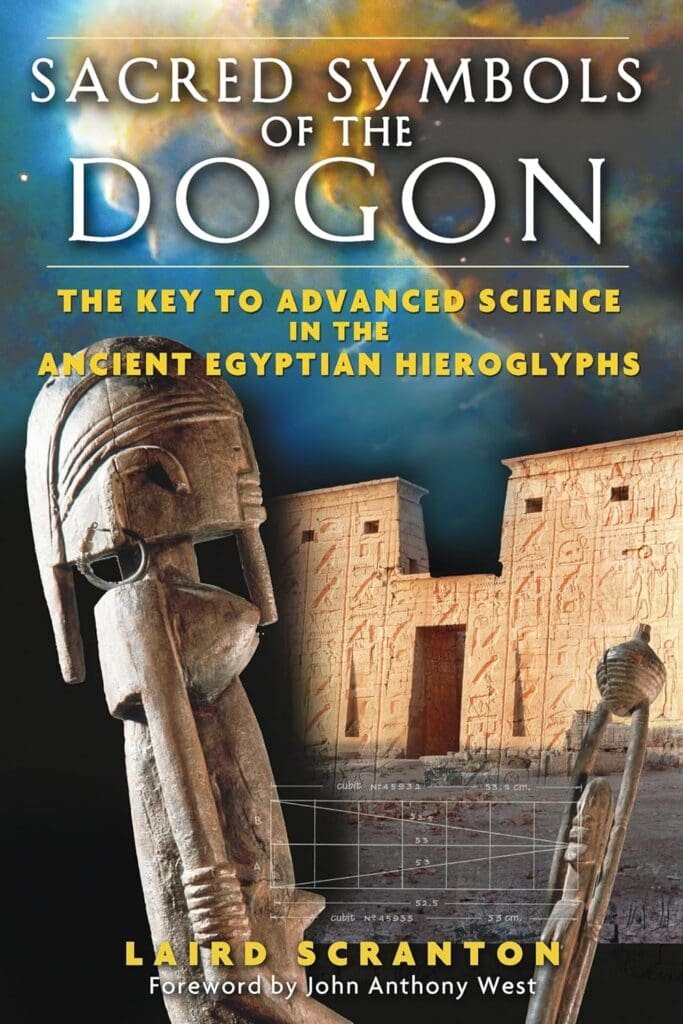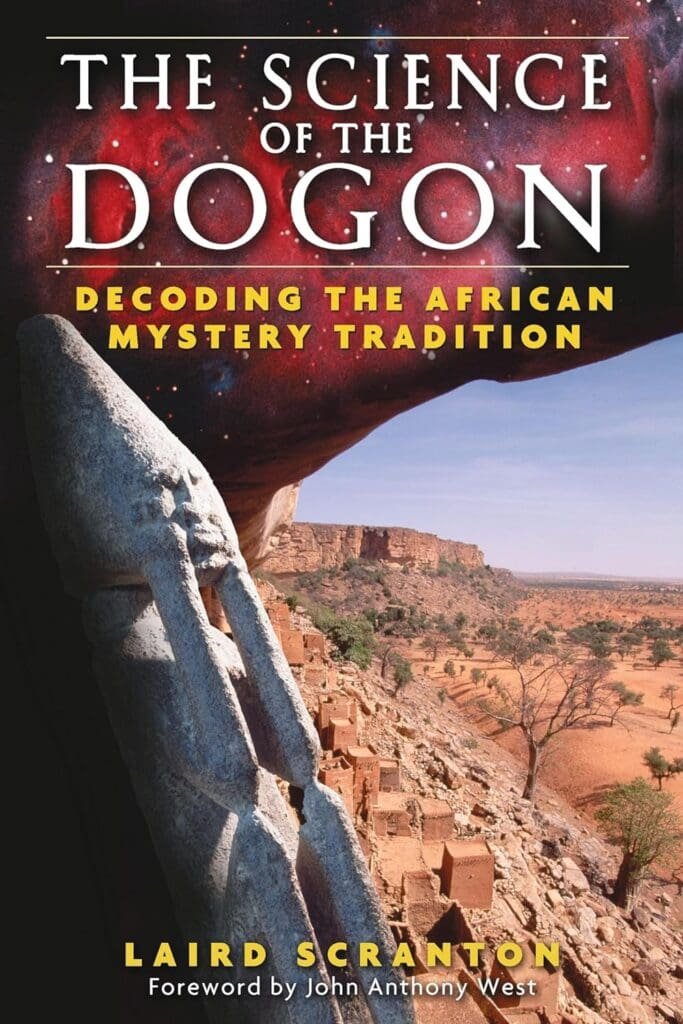Introduction
Dogon religion of the people of Mali possesses a complex and sophisticated religious belief system deeply intertwined with their understanding of astronomy and cosmology. Central to this is their knowledge of the Sirius star system, which forms a cornerstone of their spiritual and ceremonial practices. This essay delves into the intricate beliefs of the Dogon, exploring how their cosmology, despite the absence of modern astronomical tools, aligns with contemporary scientific knowledge and how it permeates their cultural and ritual practices.
Watch the dogon religion video from National Geographic
The Sirius Mystery
The Dogon’s knowledge of Sirius, a binary star system consisting of Sirius A and its smaller companion, Sirius B, is one of the most striking aspects of their cosmology. Known to the Dogon as ‘Digitaria’, they describe Sirius B as a tiny yet hefty star that takes 50 years to orbit Sirius A. This aligns closely with modern astronomical findings – a fact that has perplexed scientists and historians, given the Dogon’s historical lack of access to telescopes or other advanced observational tools.
Cosmological Foundations
The Dogon cosmology is not just limited to the knowledge of Sirius but extends to a detailed understanding of the universe. They believe the universe was created by a deity named Amma, who also designed the Earth, the sun, and the stars. According to Dogon mythology, the first creation of Amma was an egg, symbolizing the universe, containing a pair of twins representing the duality and balance inherent in their worldview.
Symbolism and the Nommo
Central to Dogon’s belief is the significance of the Nommo, ancestral spirits believed to have descended from the sky. The Nommo are often depicted as amphibious beings and are considered crucial intermediaries between the supreme god, Amma and the people. They symbolize the vital life force and are thought to be the source of all wisdom and the guardians of all knowledge and rituals.



Rituals and Ceremonies
Rituals and ceremonies are vital in the Dogon religion, serving to communicate with the spiritual realm. These rituals often involve elaborate dances and masks, each with a specific meaning and purpose. The Dama ceremony, for instance, is a crucial ritual that marks the transition of the deceased from the world of the living to that of the ancestors. It is a complex event involving dance, masks, and sculptures, symbolising the reconstruction of the earth and the social order.
The Role of Masks
Masks hold a significant place in Dogon ritual practices. They are believed to be powerful objects that enable communication with the spirit world. Each mask has a specific name and role, representing various animals, ancestors, or concepts. The masks are used in dances that tell stories of the Dogon creation myth, the order of the universe, and the relationship between humans and the spiritual realm.
Astronomy and Agricultural Practices
The Dogon’s understanding of astronomy is not merely theoretical but is deeply integrated into their agricultural practices. They use the cycles of stars and constellations to determine the timing for planting and harvesting. This practical application of their astronomical knowledge highlights the holistic nature of their belief system, where the cosmic order directly influences daily life.
The Sigui Festival
One of the most essential Dogon rituals is the Sigui festival, which occurs every 60 years and corresponds with the cycle of Sirius A and B. This festival is a communal event involving the entire Dogon people and is focused on the renewal of the world and society. It is a time of teaching, where knowledge is passed down, ensuring the continuation of Dogon traditions and beliefs.
Interpretations and Controversies
The understanding of Dogon’s knowledge of Sirius has been debated among scholars. Some suggest that their knowledge might have come from external sources, while others argue it is an inherent part of their ancient oral traditions. Regardless, the depth of their astronomical understanding remains a fascinating aspect of their culture.
Dogon Religon Conclusion
In conclusion, the religious beliefs of the Dogon tribe are a rich tapestry woven from their intricate understanding of the universe, deeply rooted in the cycles and mysteries of the cosmos. Their knowledge of Sirius, extensive mythological narratives, and ritual practices demonstrate a profound connection between their spiritual life and the celestial realm. The Dogon’s beliefs offer a unique perspective on the interplay between culture, religion, and science, showcasing the depth and complexity of indigenous knowledge systems.
Read more about the Dogon tribe on Jamie’s Planet Earth
Here are some books that I recommend. They make a great read !
Abduction, African mythology, Alien Abduction, Alien Life Forms, Ancient Astronauts, Anunnaki, Area 51, Close Encounter, Contactee, Cosmic Signals, Crop Circles, dogon mask ceremony, Dogon mythology, dogon tribe, Exobiology, Extraterrestrial, Extraterrestrial Intelligence, Flying Saucer, Galactic Federation, Grey Aliens, Interdimensional Beings, Interstellar Communication, jamie mason, mali, Martian, Mothership, Nommo, Nordic Aliens, Reptilian, Roswell, SETI, sirius, Sky Phenomena, Spacecraft Sighting, Star People, the dogon, UFO, Unidentified Flying Object, Venusian, videographer, vlogger
Dogon, Dogon tribe, Dogon people, The Dogon, The Dogon people, The Dogon tribe, The Dogons tribe, Dogon religion, Dogon religion beliefs, Dogon spirituality, National Geographic, National Geographic magazine, Nat Geo, Nat Geo magazine, NatGeo magazine, National Geo magazine, National Geographic mag, National Geo channel, Channel National Geographic, Nat Geo expeditions, National Geographic explorer, Geographical magazine, Dogon culture, Dogon cosmology, Dogon rituals, Dogon masks, Dogon cliff dwellings, Dogon Sirius mystery, Dogon ceremonies, Dogon art, Dogon mythology, Dogon architecture, Dogon astronomical knowledge, Dogon language, Dogon textiles, Dogon village life, Dogon ancestral figures, Dogon ceremonial dances, Dogon handicrafts, Dogon agriculture, Dogon history, Dogon social structure, Dogon traditional music, Dogon cliff villages.



